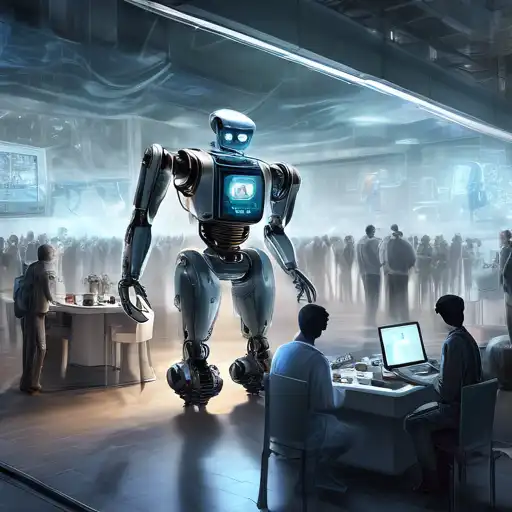The Evolution of Robotics in Modern Society
In recent years, the integration of robotics into everyday life has seen an unprecedented rise. From household chores to complex surgical procedures, robots are becoming an indispensable part of our daily routines. This transformation is not just a testament to human ingenuity but also a glimpse into a future where robotics and artificial intelligence (AI) play central roles in shaping our world.
Everyday Applications of Robotics
One of the most visible signs of robotics' integration into daily life is the advent of smart home devices. Robotic vacuum cleaners, such as the popular Roomba, have revolutionized home maintenance, offering convenience and efficiency. Similarly, robotic lawn mowers and window cleaners are becoming increasingly common, freeing up time for individuals to focus on more meaningful activities.
In the healthcare sector, robotics has made significant strides. Surgical robots, for instance, allow for precision and control beyond human capabilities, leading to less invasive procedures and quicker recovery times. Rehabilitation robots are also helping patients regain mobility and strength, showcasing the potential of robotics in improving quality of life.
The Role of AI in Robotics
Artificial intelligence is the driving force behind the advanced capabilities of modern robots. AI enables robots to learn from their environment, make decisions, and perform tasks with minimal human intervention. This synergy between robotics and AI is paving the way for innovations such as autonomous vehicles and drones, which promise to redefine transportation and logistics.
Moreover, AI-powered robots are being deployed in customer service roles, providing 24/7 assistance and personalized experiences. From chatbots to robotic concierges, these advancements are enhancing customer engagement and operational efficiency across various industries.
Challenges and Opportunities
Despite the remarkable progress, the rise of robotics presents both challenges and opportunities. Concerns over job displacement and privacy issues are at the forefront of public debate. However, the potential for robotics to create new job categories and improve workplace safety cannot be overlooked.
As we navigate this evolving landscape, it is crucial to foster a balanced approach that embraces innovation while addressing ethical considerations. The future of robotics in everyday life is not just about technological advancement but also about ensuring that these developments benefit society as a whole.
Looking Ahead
The trajectory of robotics suggests a future where their presence in our lives will only grow more pronounced. With ongoing research and development, we can expect to see robots taking on more complex roles, from elderly care to environmental conservation. The possibilities are limitless, and the impact of robotics on everyday life is just beginning to unfold.
For those interested in exploring more about the intersection of technology and daily life, check out our articles on AI innovations and the future of automation.
